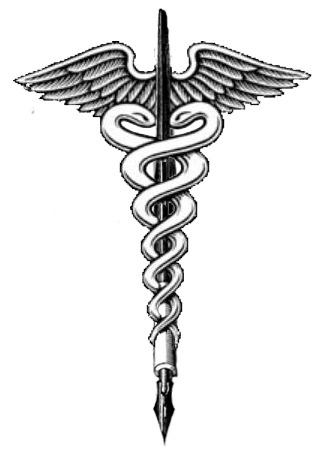|
Contact Precaution — by Erin X. Wei
Cloaked in yellow precaution robes, we walked into the dimly lit room, with the only light coming from the IV monitor. An unshaven man in his late 40’s slumped on the recliner in the far corner. Even in his dilapidated state, I recognized him immediately.
The attending walked in the man’s field of vision, while the rest of us, fresh-out-of-second-year medical students, kept our distance. This was not the time to be zealous.
The attending asked the patient about his sleep, mood, appetite, and then asked if he had thoughts of hurting himself. The man stared out the window as he shook his head with each questions.
Just as the interview was about to conclude, without warning, the man turned to me. The familiar eyes, filled with tears, met mine, as he asked in earnest desperation, “What do you think I should do?”
The despondency behind his words delivered an emotional wallop that I did not expect. Covered head-to-toe in precaution gear, I had never felt so exposed.
I froze, swallowed hard, and did the only thing that I thought would be “professional” in a moment like this. I walked towards him and asked the patient if he remembered me. He nodded.
Two months ago, I had met the same man from Portugal in another room down the hall. I recall a preponderance of colors: his green soccer jersey, his piercing blue eyes with a yellow tint around them, and a bright pink Tinkerbell backpack, filled with prescription bottles, sitting on the couch.
“That used to be my daughter’s, when she was younger,” he said with a smile as he saw me looking.
He had agreed to let me practice the abdominal exam on him while he watched the ManU game. From his choice of programming, soccer jersey and cultural heritage, I gathered that he was at least somewhat of a soccer enthusiast.
“Do you play?” I had asked as I looked for fluid waves on his distended stomach, and apologized for my cold hands.
“Used to,” he had replied in good spirit with a hint of an accent, “but I got too tired.”
I remembered little of the man’s medical history except it was notable for its length. An infection that he had had as a kid now dominated his life, causing four failed mitral valve replacements and interminable trips to the cardiac wing.
Now the belly I had learned the abdominal exam on was fully exposed. His grief was too great for him to notice or care.
His question reverberated in my mind. What would I do? What would I do if I had hoped for years for a new heart, only to be told an hour ago that I would not be getting one?
The incongruities of life were painfully apparent in this moment. With little experience in life and even less experience in medicine, I stood before a dying man, and he wanted my advice.
We were protected by our gowns from whatever he had that we were not supposed to spread around the hospital, but how were we to protect ourselves from what we felt in that moment?
We made an unceremonious exit. As soon as we took off our gear and sanitized our hands, we went on to see the next patient.
I tried hard to no longer think of him, because there was nothing to be done. I later realized that we left something else behind in the precaution bin that day. We had to – in order to protect ourselves.
|
